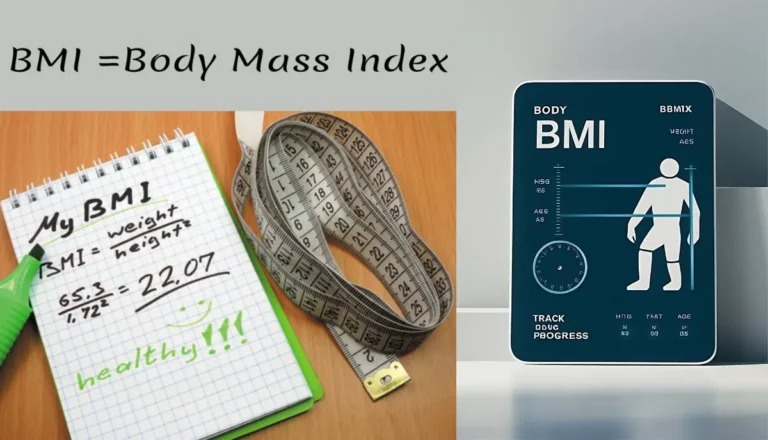Disclaimer: I have affiliate links in this post and receive a commission on any purchases you make at no cost to you. It’s one of the ways I support my site.
Did you know that intermittent fasting for longevity can make you more sensitive to insulin? It also helps with heart health and brain function. Many people are now trying the 16:8 method, which means fasting for 16 hours and eating for 8 hours. This shows that the longevity diet is backed by science and can improve health and increase lifespan.
This old practice is now getting the attention it deserves. It offers many fasting benefits for aging, like cellular renewal and better metabolism. By adding intermittent fasting to their lives, people want to live longer and healthier. Experts say that regular fasting can change your life, helping you live a longer and more active life.
The Science Behind Intermittent Fasting for Longevity
Intermittent fasting is a unique way to boost health and live longer. It’s based on cellular autophagy, a key process that cleans cells. This process shows how fasting changes our bodies in ways that help us stay healthy.
Understanding Cellular Autophagy
Cellular autophagy is like a recycling system for cells. It gets rid of damaged parts and proteins. This is important for fighting inflammation and preventing diseases that come with age. Studies show that fasting boosts autophagy, making cells healthier and stronger.
Physiological Transformations During Fasting
Fasting does more than just clean cells. It makes our bodies more sensitive to insulin, which is good for our metabolism. Research says these changes can lower the risk of chronic diseases. This shows how fasting is good for our health. Scientists are still learning more about how eating patterns can help us live longer and healthier.
Benefits of Intermittent Fasting for Overall Health

Intermittent fasting has many health benefits that can make you feel better overall. It helps with metabolic health, reduces inflammation, and boosts brain function. These benefits can lead to a healthier life, making you live longer and enjoy life more.
Improved Metabolic Health
One big plus of intermittent fasting is how it helps your metabolic health. Studies show it makes your body better at using insulin and controlling blood sugar. A 2015 study found it works better for men than women in managing blood sugar.
Also, a 2016 review showed it lowers triglycerides, which is good for your heart. This means it can help prevent heart disease.
Reduction of Inflammation and Disease Risk
Intermittent fasting also lowers inflammation. This helps avoid chronic diseases, like heart disease and cancer. Recent studies say it might be better than regular diets at fighting inflammation. A 2018 review found it helps your body handle oxidative stress. This can slow aging and improve health.
Cognitive Benefits and Brain Health
Intermittent fasting is also good for your brain. Studies in 2019 on animals showed it can help grow new nerve cells. This could mean better memory and protection against diseases that affect the brain, which is good for aging and brain health.
| Benefit | Evidence |
|---|---|
| Improved Metabolic Health | Enhanced insulin sensitivity, better glucose regulation (2015, 2016 studies) |
| Reduction of Inflammation | Decreased inflammation markers and oxidative stress resistance (2018 review) |
| Cognitive Benefits | Growth of new nerve cells and improved brain function (2019 animal studies) |
Intermittent Fasting for Longevity: Various Methods Explained

Intermittent fasting offers different ways to improve health and increase life span. Each method suits different lifestyles and brings great benefits. Knowing these methods helps people pick the best one for them.
Time-Restricted Eating (16/8 Method)
The 16/8 method is easy to follow. It limits eating to an 8-hour window, then you fast for 16 hours. This can lead to eating less, losing weight, and improving how your body uses insulin. It’s easy to stick with, making it a good choice.
Alternate-Day Fasting
Alternate-day fasting alternates between normal eating and very little or no food on some days. It helps reduce weight, waist size, and other health numbers. It also lowers blood pressure and improves cholesterol. This can prevent age-related diseases.
5:2 Diet Approach
The 5:2 diet lets you eat normally most days but eat very little on two days a month. It’s good for losing weight and making your body more sensitive to insulin. This can lower inflammation and help you live longer. The 5:2 diet makes eating habits easier to keep up with.
| Method | Eating Pattern | Key Benefits |
|---|---|---|
| Time-Restricted Eating (16/8) | 8-hour eating window, 16-hour fast | Weight loss, improved insulin sensitivity |
| Alternate-Day Fasting | Cycling between normal eating and fast days | Reduced body weight, improved cardiovascular health |
| 5:2 Diet | Normal eating for 5 days, caloric restriction for 2 | Enhanced metabolic health, weight management |
Choosing the right fasting method can boost your health and meet your health goals. Each method has its own benefits, so it’s important to find one that fits your life.
The Fasting Mimicking Diet: An Accessible Alternative
Dr. Valter Longo created the Fasting Mimicking Diet (FMD). It’s a way to get fasting benefits without fully fasting. This diet is low in calories, protein, and sugar. It makes your body act like it’s fasting, but you still get the nutrients you need.
This diet helps you live healthier and longer. It’s a path to better health through understanding the FMD.
How It Works
The FMD helps your cells renew themselves by starting a process called autophagy. This is like a “cleaning” of your cells. It’s like fasting but easier to follow because you still eat.
You eat special foods for five days, like vegetable soups and teas. This helps you not feel hungry and makes it easier to stick with the diet.
Scientific Support and Benefits
Many studies back up the FMD, showing it has many health perks. It can make you biologically younger and boost stem cell growth. The benefits include:
- Enhanced autophagy for better cell health
- Lower risk of diseases like diabetes and heart issues
- Helps prevent and treat cancer
This diet is great for those wanting health benefits without a strict diet. Eating this way once a month can help a lot. To keep up the good effects, you can use ProLon’s one-day reset kit every two weeks.
The science behind the Fasting Mimicking Diet shows it’s a smart choice. It’s a way to enjoy fasting’s benefits easily and sustainably.
| Health Benefits | Mechanisms |
|---|---|
| Improved Cellular Health | Activation of autophagy |
| Reduced Disease Risk | Regulation of insulin sensitivity |
| Cancer Prevention | Enhanced stem cell regeneration |
| Biological Age Reduction | Metabolic improvements |
Water Fasting and Juice Fasting: Different Approaches to Health
Exploring fasting methods gives people ways to boost their health and feel rejuvenated. Water fasting and juice fasting are two main types, each with its own benefits and challenges. This section reviews the health benefits of water fasting. It also looks at the nutrition of juice fasting. It shows how both can help with overall wellness.
Health Benefits of Water Fasting
Water fasting means not eating food but only drinking water. It’s known for its health benefits. People who try this may see better cell regeneration and a clean-out of damaged cells. This can lead to:
- Reduced inflammation: Water fasting lowers inflammation markers in the body. This can lower the risk of chronic diseases.
- Weight loss: Not eating calories starts a metabolic shift that uses fat, helping with weight loss.
- Improved metabolic health: Short-term fasting can make insulin work better. This is key to good metabolic health.
It’s important for people, especially those with health issues, to talk to doctors before starting water fasting for a long time.
Nutritional Aspects of Juice Fasting
Juice fasting is a gentler way to improve health. It means drinking only fresh vegetable and fruit juices for a while. The benefits of juice fasting include:
- Essential nutrient intake: Juice fasting gives important vitamins, minerals, and antioxidants. It supports health without giving up food completely.
- Detoxification support: It helps the body get rid of toxins, making you feel more alive.
- Sustained energy levels: Unlike water fasting, which can make you tired, juice fasting keeps your energy up. It’s easier for many people.
In summary, both water fasting and juice fasting have their ways of helping with health and rejuvenation. Water fasting focuses on deep cell benefits. Juice fasting makes sure you get the nutrients you need, making it a good choice for many.
| Fasting Type | Primary Benefits | Considerations |
|---|---|---|
| Water Fasting | Enhanced autophagy, reduced inflammation, weight loss | Requires supervision, potential fatigue |
| Juice Fasting | Nutrient intake, detoxification, sustained energy | May be less intense, easier for beginners |
Fasting as a Tool for Disease Prevention
Fasting is great for preventing diseases, especially for those with Type 2 diabetes and heart issues. It changes how our metabolism works and helps our body fight off diseases. Studies show that different fasting methods can boost our health and help manage diseases.
Type 2 Diabetes Reversal Studies
Research has found that fasting can even reverse Type 2 diabetes. It makes our bodies better at handling sugar levels. A study showed that fasting improved fasting insulin levels and made insulin work better. This is key to stopping Type 2 diabetes and shows fasting’s role in preventing diseases.
Cardiovascular Health Improvements
Fasting is good for the heart too. Studies say it lowers bad cholesterol and blood pressure, which are heart disease risks. It also reduces inflammation and boosts heart function. So, people who fast may see big improvements in their heart health.
Potential in Cancer Prevention and Treatment
New studies hint that fasting might lower cancer risk by affecting our biology. It could slow down tumor growth and make chemotherapy work better against some cancers. This link between fasting and cancer prevention is exciting and needs more research.

Intermittent Fasting Research and Future Directions
Research on intermittent fasting is uncovering its benefits for aging and living longer. Many recent studies show health improvements and a better understanding of how it works.
Recent Studies on Aging and Longevity
Studies on animals and humans show that intermittent fasting can help with obesity and diabetes. While animal studies have mixed results on lifespan, researchers are looking at how it changes metabolism. The body starts making ketones instead of glucose for energy, which is key.
This change helps as an energy source and sends signals that could help us live longer. Researchers are keen on understanding these signals and their impact on aging.
Clinical Trials and Ongoing Research
Clinical trials are now looking into how safe and effective different fasting methods are. Most studies focus on short-term effects, but the long-term effects are still unknown. Some studies suggest it can improve insulin resistance and reduce inflammation.
However, we need more evidence on its long-term effects, like how it affects lifespan. Changing our diets and sticking to new patterns are big challenges. More research is needed to see if intermittent fasting can work for different people and ages.
Nutrition and Lifestyle Considerations for Successful Fasting
When you start intermittent fasting, think about your nutrition and lifestyle. Eating foods that are full of nutrients can make fasting better and more effective. It’s important to focus on certain foods to keep your energy up and stay healthy.
Creating a Balanced Eating Plan
Make a meal plan that fits your health needs and likes. Eating a mix of foods is key for staying healthy while fasting. Important foods include:
- Non-starchy vegetables for vitamins and minerals
- Healthy fats, such as avocados and nuts, to enhance satiety
- High-quality proteins like lean meats, fish, and legumes for maintaining muscle mass
These foods help you get the most out of fasting. Having a good schedule for eating these foods will help you stay healthy and follow nutritional advice.
Importance of Medical Supervision
Talking to doctors before starting too fast is a smart move. It’s especially important if you have health issues or special diet needs. Doctors can help make a fasting plan that fits your health goals.
Here’s why getting a doctor’s advice is good:
| Benefit | Description |
|---|---|
| Personalized Guidance | Healthcare providers can create a fasting plan that aligns with individual health needs. |
| Monitoring Health | Regular assessments help track progress and identify potential issues early. |
| Support for Chronic Conditions | Medical professionals can advise on fasting strategies suitable for chronic disease management. |
| Safety Assurance | Supervision ensures that fasting is being done safely without causing adverse health effects. |

Personal Experiences: Expert Insights on Fasting
Experts share many insights on how fasting can help with longevity and health. Longevity researchers say personal stories often back up scientific facts. Health experts suggest tailoring fasting to fit your life and health goals.
Findings from Longevity Researchers
Dr. Gabrielle Lyon and other longevity experts focus on muscle health for better metabolism and longer life. They note that only a few people are truly metabolically healthy. Dr. Lyon recommends eating at least 100 grams of protein a day to keep muscles strong, especially after 40.
She also suggests doing resistance exercises 2-3 times a week. This helps keep muscles strong and metabolism working well, especially after 40.
Anecdotal Evidence from Long-term Fasters
People who fast for a long time share stories of big changes. They talk about better workouts, more energy, and healthier eating. Starting to fast might make you feel anxious or upset at first, but the benefits last a long time.
There are many ways to fast, like the 16-8 method or the 5:2 diet. People say fasting helps them drink more water and eat less. Stories from those who fast show how it can lead to a healthier life. Experts and personal stories together show the good and bad of fasting for a long life.
| Aspect | Expert Insights | Anecdotal Evidence |
|---|---|---|
| Protein Intake | Recommended at least 100 grams daily for muscle health | Improved muscle retention and overall vitality |
| Muscle Health | Critical after age 40; focus on resistance exercise | Enhanced workout performance in a fasted state |
| Energy Levels | Importance of metabolic health for longevity | Increased natural energy and productivity levels |
| Fasting Methods | Variety of methods available to suit individual needs | Positive personal transformations reported |
| Common Concerns | Support needed during the transition phase | Experiences of anxiety and stomach issues cited |
My Personal Experience With Intermittent Fasting
I’ve been doing intermittent fasting for almost 4 years. And all I can say is positive. Let me tell you why.
When I started, I lost 10 kg of weight (22 lbs.) in the first 6 weeks. I did not want to lose more weight because I was a 1.91m (6.3”) man weighing at that moment 90kg (198 lbs.). After six weeks it was 80 kg (176 lbs.) A healthy weight for me.
The hardest part when starting is trying to suppress your hunger during the fasting period, but it’s amazing how fast your body adapts to a low food intake. After the first week, it was much easier. I started with the 16: 8 methods meaning fasting 16 hours and then eating during the 8 hours.
The key to losing weight is not to go eating everything you like during those 8 hours but to eat healthy foods. I only had breakfast and a healthy lunch with sometimes something light at the end of the 8 hours. I did this 7 days a week for months. There were times that I skipped it to indulge myself in the non-healthy foods, like hamburgers, fries, pizza, etc. You get the picture.
That is no problem if you do it occasionally and start your fasting routine the next day. The biggest advantage that I experienced was that lack of a desire to eat sweet stuff. You know what I mean, all those sweet desserts, donuts, candy, etc. I could look at the sweet stuff without having the desire to eat it, but instead thinking about the harm it does to your body.
I still do intermittent fasting, but the time schedules will change depending on how I feel. There are days that I do the 14:10 method, other days the 16:8 and sometimes the 20:4 method. Doing this helps me maintain my weight between 83kg and 86 kg. For my height and age (69) it’s considered a healthy weight.
I almost forgot to mention it but doing regular exercise helps a lot too. I go 4 times a week to the gym for a weight training exercise. If you have health issues, please contact your doctor first before starting and tell him what you want to do so that he/she can advise you if it’s a good choice.
Conclusion
Intermittent fasting is a strong way to live longer and be healthier. It comes in many forms, like time-restricted eating and the Fasting Mimicking Diet. This variety lets people choose what fits their life best. This makes fasting a popular choice for staying healthy.
Research shows that fasting helps prevent diseases and boosts health in many ways. For example, alternate-day fasting can be as effective as eating less every day. This shows how important what we eat is for our health.
More people are adding fasting to their daily routines. It’s seen as a key strategy for aging well. The research suggests that fasting could be a big part of living a long, healthy life. By trying it, people might live longer and feel better.
Frequently Asked Questions
Q: What is intermittent fasting and how does it promote longevity?
A: Intermittent fasting involves cycling between periods of eating and fasting. This diet aims to extend life. It does this by reducing the risk of early death and disease. It also promotes healthy aging.
Q: How does calorie restriction affect lifespan?
A: Calorie restriction has been shown to extend lifespan in various animal models. By limiting calorie intake, the body can reduce the hallmarks of aging and improve overall healthspan.
Q: What does new research say about intermittent fasting and longevity?
A: A study by the Leonard Davis School of Gerontology found that intermittent fasting diets, like water-only and prolonged fasting, can boost longevity. They may also reduce aging and disease, promoting a healthy lifespan.
Q: Are there specific health benefits of fasting diets for cardiovascular disease?
A: Yes, fasting diets can lower the risk of heart disease. They promote heart health, leading to a longer, healthier life.
Q: How does intermittent fasting help in maintaining a healthy weight?
A: Intermittent fasting helps control hunger and metabolism. It makes it easier to maintain a healthy weight. This is key to lowering the risk of obesity-related diseases, like diabetes and heart disease.
Q: Can intermittent fasting be used to treat diseases like Parkinson’s disease?
A: Yes, some studies suggest that intermittent fasting may help treat neurological diseases like Parkinson’s. It may protect healthy cells and reduce inflammation.
Q: Is there a connection between fasting and the reduction of aging and disease?
A: Yes, both intermittent fasting and calorie restriction reduce aging and age-related diseases. This connection is seen in a healthier metabolism, less inflammation, and the growth of healthy cells.
Q: How long should one fast for it to be effective for healthspan and longevity?
Fasting can vary in length. Studies show that 16 to 48 hours of water-only fasting can promote health and longevity.
Q: What side effects might one experience with intermittent fasting diets?
A: Some common side effects may include hunger, fatigue, irritability, and difficulty concentrating. It’s important to talk to a healthcare provider before starting any new diet, especially if you have health issues.
Q: How effective are intermittent fasting diets in animal models?
A: In animal models, intermittent fasting can extend lifespan. It improves metabolic health and lowers chronic disease risk. This confirms its potential to promote longevity in humans.








